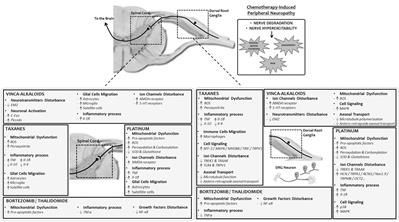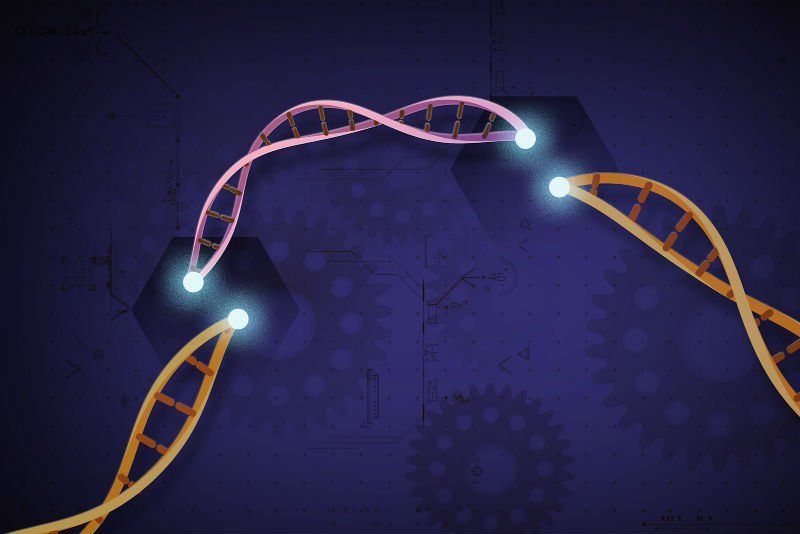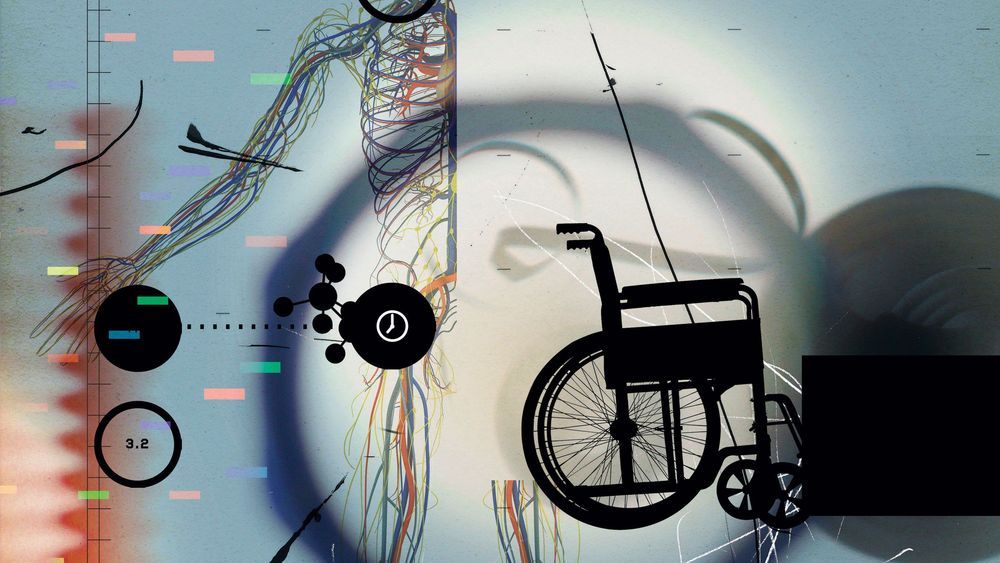UK biotech valued at $500m and aiming for IPO next year.



Neurotoxic anticancer drugs, such as platinum-based anticancer drugs, taxanes, vinca alkaloids, and proteasome/angiogenesis inhibitors are responsible for chemotherapy-induced peripheral neuropathy (CIPN). The health consequences of CIPN remain worrying as it is associated with several comorbidities and affects a specific population of patients already impacted by cancer, a strong driver for declines in older adults. The purpose of this review is to present a comprehensive overview of the long-term effects of CIPN in cancer patients and survivors. Pathophysiological mechanisms and risk factors are also presented. Neurotoxic mechanisms leading to CIPNs are not yet fully understood but involve neuronopathy and/or axonopathy, mainly associated with DNA damage, oxidative stress, mitochondria toxicity, and ion channel remodeling in the neurons of the peripheral nervous system. Classical symptoms of CIPNs are peripheral neuropathy with a “stocking and glove” distribution characterized by sensory loss, paresthesia, dysesthesia and numbness, sometimes associated with neuropathic pain in the most serious cases. Several risk factors can promote CIPN as a function of the anticancer drug considered, such as cumulative dose, treatment duration, history of neuropathy, combination of therapies and genetic polymorphisms. CIPNs are frequent in cancer patients with an overall incidence of approximately 38% (possibly up to 90% of patients treated with oxaliplatin). Finally, the long-term reversibility of these CIPNs remain questionable, notably in the case of platinum-based anticancer drugs and taxanes, for which CIPN may last several years after the end of anticancer chemotherapies. These long-term effects are associated with comorbidities such as depression, insomnia, falls and decreases of health-related quality of life in cancer patients and survivors. However, it is noteworthy that these long-term effects remain poorly studied, and only limited data are available such as in the case of bortezomib and thalidomide-induced peripheral neuropathy.
Platinum-based anticancer drugs (i.e., cisplatin, oxaliplatin), proteasome/angiogenesis inhibitors (bortezomib/thalidomide), vinca alkaloids (i.e., vincristine, vinorelbine) and taxanes (i.e., paclitaxel, docetaxel) are the most common anticancer drugs used as first-line chemotherapy for several cancers, including colorectal, gastric, breast and lung cancers, and multiple myeloma. Despite their different action mechanisms, all these anticancer drugs share a common adverse and disabling effect for patients, namely CIPN (Balayssac et al., 2011). CIPN has a considerable impact on cancer treatments and their related symptoms severely affect patients’ daily activities and quality of life. Thus CIPN is often the main adverse effect leading to the reduction or discontinuation of chemotherapy.

The evolving gene-editing technology CRISPR-Cas9 is useful for changing one gene, or maybe a few genes at a time. A team at ETH Zurich has tweaked the technology so they can change 25 different gene sites at once. Instead of using the Cas9 enzyme to do the DNA cutting, though, they used Cas12a. That allowed them to create a long “address list” of gene sites to target, they explained in the journal Nature Methods. They created a DNA molecule called a plasmid to store the list, inserted it in human cells and were able to modify several genes, they reported. (Release)
Chemotherapy and radiation suppress blood stem cells, often for several weeks or even months after cancer treatments are complete. This leaves patients vulnerable to infections and other health problems. Scientists at the University of California, Los Angeles have created a new drug that targets the protein tyrosine phosphatase-sigma (PTP-sigma), which is prevalent on blood stem cells. They showed that blocking the protein in rodent models with the drug, called DJ009, helped blood cells recover more quickly after they were damaged by radiation. They published their findings in the journal Nature Communications. (Release)

Supplementing psychotherapy with small doses of MDMA could be an effective strategy to prevent relapses of alcohol addiction in patients, an ongoing small clinical trial suggests. The research is yet another example of how scientists and doctors are finding or rediscovering therapeutic uses for recreational and illicit drugs.
MDMA-assisted therapy is actually an old idea, which enjoyed some popularity in the 1970s and 1980s. Though the exact mechanisms are unclear, the synthetic drug’s euphoric effects are thought to amplify the positive patterns of thinking taught by therapy, as well as make people feel less anxious during sessions. Of course, these same mood-boosting attributes made MDMA a popular recreational drug. This popularity led the U.S. government to ban MDMA in 1985, by classifying it as a Schedule 1 drug with no accepted medical use.
People say, well, but we’re going to stop being human if we merge with machines. No, that is what it means to be human.
Dr. Kurtzweil, I would like to ask you. You have made hundreds of predictions out of which many already have come true, and with no doubt many more will come through. But if you would have to single out your three most important predictions for the upcoming decade, what would they be?
Well, one is health and medicine. We talked about our bodies and our bodies are basically actually information because it’s governed by our genes. They are information processes. We didn’t used to treat it that way. It was basically hit or miss. We’d find something. Oh, here’s something that lowers blood pressure. Here’s something that kills HIV. And we would find these things accidentally, so progress was linear. Still valuable. I gave a speech to 12 and 13 year old science winners recently and I said you all would be senior citizens if it hadn’t been for this progress because life expectancy was 19 a thousand years ago. But this is going to go into high gear now. The enabling factor for health and medicine to become an information technology was the genome project. That itself is a perfect exponential and we now have the software of life and we’re also making exponential progress in being able to model it, simulate it, understand it and reprogram it.
And I could speak at great length about examples of how we’re doing that. You can for example now fix a broken heart. Not yet from romance, that’ll take a few more developments in virtual reality, but from a heart attack. My father had a heart attack in the 60s, nothing you could do about it, he could hardly walk. But I’ve talked to people now who could hardly walk and are now rejuvenated. You actually have to be a medical tourist and go to a place like Israel. But that’s just one example of many and what is now a sort of a trickle of these developments, is going to be a flood ten years from now. These technologies will be a thousand times more powerful than they are today because they’re doubling in power every year. They’ll be a million times more powerful in 20 years.

In 2006, scientists discovered a way to “reprogram” mature cells—adult skin cells, for example—into stem cells that could, in principle, give rise to any tissue or organ in the body. Many assumed it was only a matter of time until this groundbreaking technique found its way into the clinic and ushered in a regenerative medicine revolution.
Because the same patient would be both the donor and the recipient of cells derived from these so-called induced pluripotent stem cells (iPSCs), these cells would be seen as “self” by the immune system, the thinking went, and not subject to the problems of rejection that plague conventional transplants.
But iPSCs haven’t emerged as the cure-all that was originally envisioned, due to unforeseen setbacks, including the surprising preclinical finding that iPSC-derived cell transplants are often rejected, even after being reintroduced into the organism the cells were sourced from.

Researchers at the Stanford University School of Medicine report in a new study that they found a way to help rats recover neurons in the brain’s center of learning and memory. They accomplished the feat by blocking a molecule that controls how efficiently genetic instructions are used to build proteins.
If the approach described in the study can be applied to humans, it may one day help patients who’ve suffered a stroke, cardiac arrest or major blood loss and are thus at higher risk of memory loss.
In the study, to be published online Aug. 19 in eNeuro, researchers induced extremely low blood pressure—as would happen when the heart stops beating—in rats. These rats lost neurons in a specific region of the hippocampus critical to learning and memory, but the researchers improved the animals’ recovery of the cells by injecting a molecule that blocks a microRNA: a short molecule that tweaks gene activation by preventing the conversion of genetic blueprints into proteins. Interestingly, the scientists found that a microRNA blockade potentially causes astrocytes—cells that support neurons and make up 50% of the cells in the brain—to turn into neurons.

Each Cyclops had a single eye because, legend has it, the mythical giants traded the other one with the god Hades in return for the ability to see into the future. But Hades tricked them: the only vision the Cyclopes were shown was the day they would die. They carried this knowledge through their lives as a burden—the unending torture of being forewarned and yet having no ability to do anything about it.
Since ancient times, aging has been viewed as simply inevitable, unstoppable, nature’s way. “Natural causes” have long been blamed for deaths among the old, even if they died of a recognized pathological condition. The medical writer Galen argued back in the second century AD that aging is a natural process.
His view, the acceptance that one can die simply of old age, has dominated ever since. We think of aging as the accumulation of all the other conditions that get more common as we get older—cancer, dementia, physical frailty. All that tells us, though, is that we’re going to sicken and die; it doesn’t give us a way to change it. We don’t have much more control over our destiny than a Cyclops.

After breaking all the records related to training computer vision models, NVIDIA now claims that it’s AI platform is able to train a natural language neural network model based on one of the largest datasets in a record time. It also claims that the inference time is just 2 milliseconds which translates to an extremely fast response from the model participating in a conversation with a user.
After computer vision, natural language processing is one of the top applications of AI. From Siri to Alexa to Cortana to Google Assistant, all conversational user experiences are powered by AI.
The advancements in AI research is putting the power of language understanding and conversational interface into the hands of developers. Data scientists and developers can now build custom AI models that work exactly like Alexa and Siri but for a specialized and highly customized industry use case from the healthcare or legal vertical. This enables doctors and lawyers to interact with expert agents that can understand the terminology and the context of the conversation. This new user experience is going to be a part of future line of business applications.